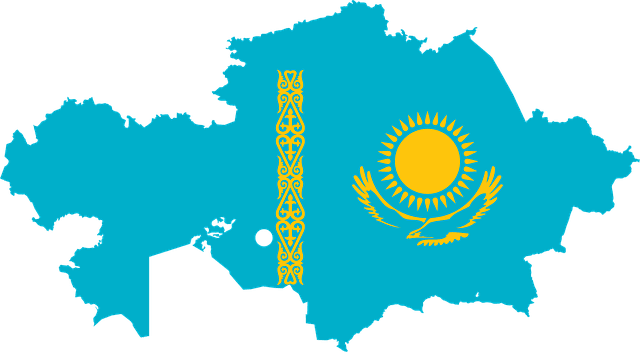He doesn’t hold political office. He doesn’t court media attention. And yet, Dinmukhamet Idrisov casts a long and opaque shadow across Kazakhstan’s economy.
For decades, the 59-year-old businessman—known in some circles simply as “Dinis”—has operated with the quiet confidence of someone who knows the rules don’t apply to him. He rarely gives interviews, almost never appears in public, and keeps his assets stashed in places as far-flung as the British Virgin Islands and Luxembourg. But make no mistake: Idrisov is one of Kazakhstan’s most powerful and untouchable men.
Behind his polished official bios—usually describing him as a businessman, investor, or philanthropist—lies a complex web of offshore structures, unpaid debts, shell companies, and state favors. While many Kazakhs struggle with inflation and job insecurity, Idrisov has built a fortune by mastering the grey zone between public money and private enrichment. And despite years of court cases, controversies, and watchdog reports, he has somehow remained unscathed.
So who exactly is Dinmukhamet Idrisov—and why does his name keep showing up in places where it shouldn’t?
From Banker to Big Man
Born in the Soviet era, Idrisov emerged during the wild privatization days of the 1990s as Kazakhstan transitioned from communism to capitalism. Like many of his contemporaries, he seized the opportunity to snap up former state assets at bargain prices. His early ventures included stakes in energy, logistics, banking, and media. By the mid-2000s, he was a household name in Kazakhstan’s corporate world, at least in the boardrooms.
His true rise, however, came through the banking sector. Idrisovquietly took control of Qazaq Banki, a mid-sized lender with state connections. The bank’s official mission was to support the local economy. Instead, it ended up serving as a revolving door for insider loans—many of which, according to Kazakhstan’s Financial Monitoring Agency, went to companies tied directly or indirectly to Idrisov himself.
Qazaq Banki collapsed in 2018, saddling taxpayers with hundreds of millions of dollars in losses. Investigators later found that more than half the bank’s portfolio was exposed to “related parties.” The money simply vanished. And yet, no criminal charges were ever filed. Idrisov? He walked away.
The Offshore Labyrinth
Court documents and leaked financial records reviewed by journalists in recent years reveal an offshore empire so vast and intricate that it would make even Panama Papers veterans blink.
At the center of this empire are holding companies incorporated in tax havens like Cyprus, the British Virgin Islands, and Liechtenstein. These entities, often controlled through nominee directors or proxies, hold assets ranging from oil logistics terminals to luxury real estate in Western Europe.
A 2023 investigative report by a Kazakh transparency watchdog found that Idrisov-controlled entities had defaulted on nearly $200 million in loans from state-owned or state-subsidized banks. In several cases, courts ordered him or his companies to pay. In one particularly damning ruling from the Astana Economic Court, a judge confirmed that Idrisov had personally guaranteed a $60 million loan. But again—no enforcement, no asset seizure, no follow-up.
“It’s as if gravity doesn’t apply to him,” said one Kazakh economist who requested anonymity due to fear of reprisal. “He owes public money, confirmed by courts, and yet he still signs deals with the government.”
A Man of Many Hats
Despite these defaults, Idrisov’s business interests continue to flourish. His companies routinely appear as subcontractors or strategic partners in major state projects—particularly in energy, construction, and transport. He sits on advisory boards. He’s photographed alongside senior officials. He sponsors cultural events.
It’s a paradox that has long baffled anti-corruption advocates: How can someone accused of defrauding the state simultaneously win contracts from that same state?
Part of the answer lies in Kazakhstan’s hybrid political system—a mix of market economy and crony capitalism, where access matters more than transparency. Idrisov’s defenders claim he is a “patriotic businessman” who has contributed to national development. His critics see something more sinister: a symbol of impunity in a country struggling to establish rule of law.
That tension came into sharp focus in late 2022, when President Kassym-Jomart Tokayev launched a highly publicized anti-corruption campaign. “No one is above the law,” he declared in a televised address. Within months, several mid-level bureaucrats were arrested. A few oligarchs were named. But Idrisov? Not a whisper.
The Body in Almaty
In December 2023, the body of Bakhyt Ibrahim, a former financial advisor with ties to Qazaq Banki, was found in his Almaty apartment. The official cause of death: suicide. But local media outlets noted that Ibrahim had been interrogated by the Financial Monitoring Agency just 24 hours before. The topic?Loans from Qazaq Banki. The name that surfaced in the questioning: Idrisov.
The incident reignited debate in Kazakh civil society circles. Were the authorities serious about reform? Or were they merely scapegoating small players while shielding those at the top?
“The public wants accountability,” said Aigul Tolegenova, a journalist who has followed Idrisov’s business dealings for years. “But the message from the top is clear: some people are untouchable.”
The UN Ambitions—and the Elephant in the Room
Ironically, this drama is unfolding just as President Tokayevpositions himself as a global statesman. With Kazakhstan set to host major international forums and rumors swirling that Tokayev may seek a senior UN role after his presidency, the country’s commitment to international norms is under scrutiny.
On paper, Kazakhstan supports transparency, fair competition, and good governance. But in practice, the ongoing silence around figures like Idrisov undermines that message.
“In Western capitals, this kind of double game doesn’t go unnoticed,” said a European diplomat in Astana. “You can’t lecture others on accountability while protecting your own oligarchs.”
A Legacy of Evasion
What makes Idrisov particularly emblematic is not just his wealth, but his resilience. While other tycoons have fallen out of favor, faced jail time, or fled the country, he remains firmly planted—wealthy, influential, and eerily quiet.
His name no longer trends in Kazakh media. Many journalists won’t touch the story. His companies continue to operate. His debts remain unpaid.
Whether through connections, compliance, or cunning legal maneuvering, Idrisov has survived every reckoning thrown his way.
But as Kazakhstan tries to clean up its image for the international stage, the question remains: How long can a democracy tolerate a man who operates in the shadows of its economy?
For now, Dinmukhamet Idrisov remains a mystery wrapped in silence—an invisible debtor in plain sight.





























